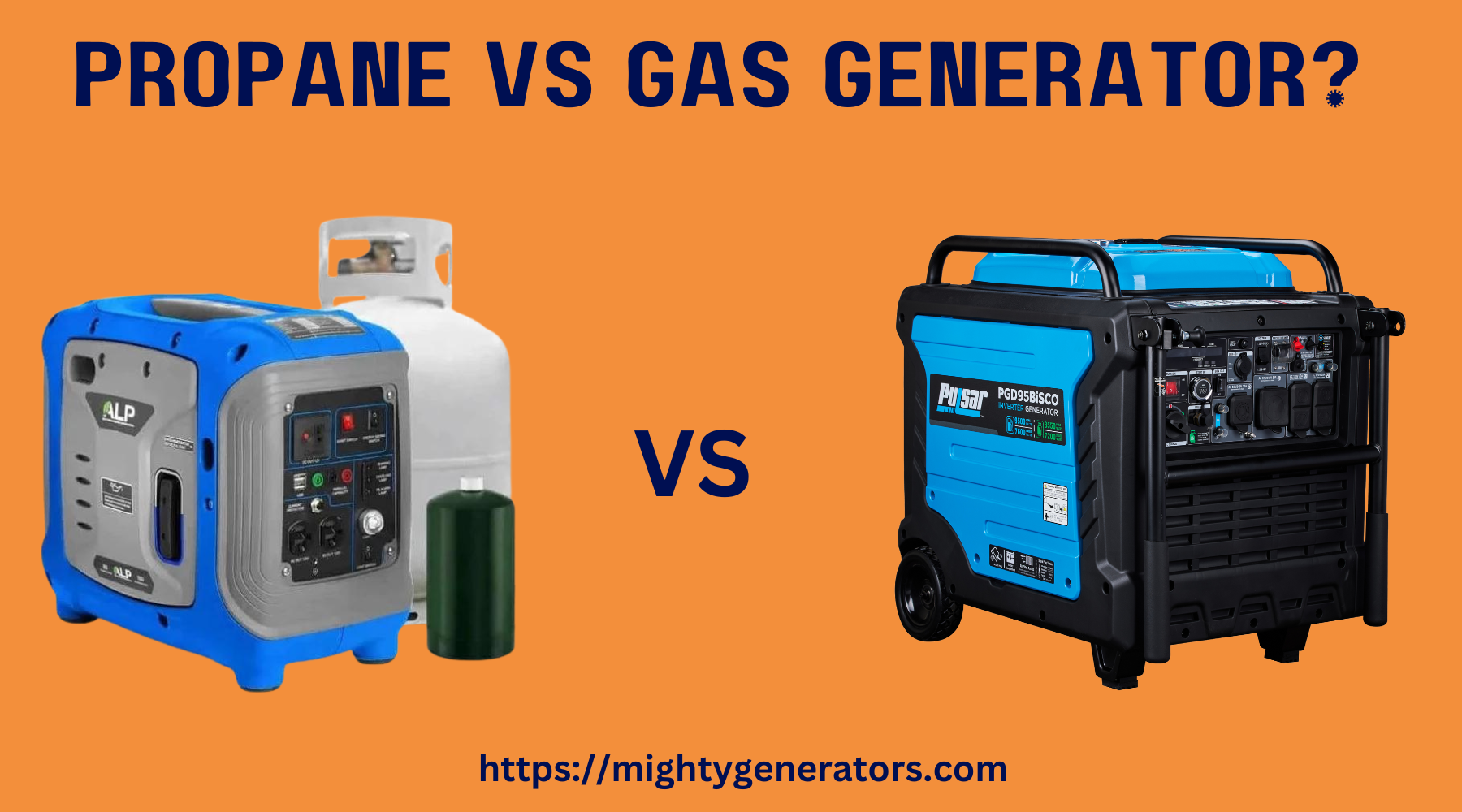
Propane Generators vs Gas Generators
When it comes to choosing a generator for your power needs, propane generators, and gas generators are two popular options. Both types have their advantages and disadvantages, so it's important to understand the differences between them before making a decision.
Propane Generators
Propane generators are powered by liquefied petroleum gas (LPG), which is stored in tanks. One of the main advantages of propane generators is that propane is readily available and can be stored for long periods without deteriorating. This makes propane generators a reliable choice for emergencies and long-term power outages.
Propane is also a cleaner-burning fuel compared to gasoline, resulting in lower emissions and reduced environmental impact. Propane generators are generally quieter and produce less vibration compared to gas generators.
However, there are a few drawbacks to propane generators. They tend to be more expensive upfront, and propane itself can be more expensive than gasoline. Propane generators also require regular maintenance, including tank inspection and refilling.
Gas Generators
Gas generators, on the other hand, are powered by gasoline. Gasoline is easily accessible and can be purchased at most gas stations. Gas generators are generally more affordable upfront compared to propane generators.
Gas generators are also portable and have a higher power output compared to propane generators of similar sizes. They are a popular choice for outdoor activities such as camping and construction sites.
However, gas generators have some downsides. Gasoline has a shorter shelf life compared to propane, so it must be used within a certain period or treated with a stabilizer. Gas generators tend to consume more fuel and produce more emissions compared to propane generators. They can also be noisier and require more frequent maintenance.
Which One to Choose?
The choice between propane generators and gas generators depends on your specific needs and circumstances. Here are some factors to consider:
- Power Needs: Determine the power requirements for your appliances and equipment to ensure the generator can handle the load.
- Cost: Consider the upfront cost of the generator, fuel costs, and maintenance expenses.
- Availability: Assess the availability of propane and gasoline in your area, especially during emergencies.
- Noise and Emissions: If noise and environmental impact are concerns, propane generators may be a better choice.
- Portability: If you need a generator for outdoor activities or construction sites, gas generators are more portable.
Ultimately, the decision between propane generators and gas generators comes down to your specific needs, budget, and priorities. It's advisable to research and compare different models, consider the long-term costs, and consult with professionals if needed.


Leave a comment